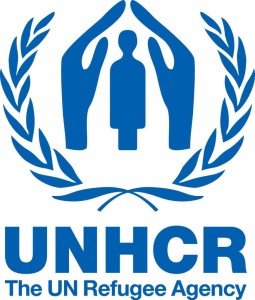- BY Ali Bandegani

UNHCR’s Guidelines on Military Service
THANKS FOR READING
Older content is locked

A great deal of time and effort goes into producing the information on Free Movement, become a member of Free Movement to get unlimited access to all articles, and much, much more
TAKE FREE MOVEMENT FURTHER
By becoming a member of Free Movement, you not only support the hard-work that goes into maintaining the website, but get access to premium features;
- Single login for personal use
- FREE downloads of Free Movement ebooks
- Access to all Free Movement blog content
- Access to all our online training materials
- Access to our busy forums
- Downloadable CPD certificates
According to the Independent newspaper, scientists have located “the conscience.” It’s in the front part of the brain and is the size of a Brussels’ sprout. For those who object to military service on grounds of conscience, this is where the action happens. The UNHCR’s “Guidelines on Military Service“, published on 13 December 2013, examines what the conscience means for those seeking protection from service in State and non-State armed forces. Whilst there can be no substitute to reading the guidelines in full, I’ve attempted to distil the most important parts into seven points, followed by an outline of UK law, and a bit of commentary about how things in this area might develop.
 THE UNHCR GUIDELINES
THE UNHCR GUIDELINES
Justification in law
States have a right of self-defence under both the UN Charter and customary international law. Nonetheless, for state military recruitment and service to be justified it needs to be prescribed by law and implemented in a non-arbitrary and non-discriminatory manner. The functions and discipline of recruits must be based on military needs and plans, and ultimately be challengeable in a court of law.
Conscience
Conscientious objection to military service refers to an objection that derives from profound conviction arising from religious, moral, ethical, humanitarian or similar motives. The right applies to absolute, partial, or selective objection to war. It extends to volunteers as well as conscripts, operates during times of peace as well as conflict, and may be claimed before or after joining the armed forces.
Persecution
Persecution will be established if the individual is at risk of serious harm because of
(i) the conditions of service;
(ii) disproportionate or arbitrary punishment for refusing to undertake State military service or
(iii) for refusing to engage in acts contrary to international law (the methods and means employed in an armed conflict).
In assessing the risk of persecution, it is important to take into account not only the direct consequences of the refusal to perform military service [for example, prosecution and punishment, or committing a war crime], but also any negative indirect consequences such as violence, discriminatory or arbitrary denial of resources, entitlements or social services.
Respect
The guidelines explain conscientious objection will be respected where the person is exempted from military service or where appropriate alternative civilian service is available. Similarly, there will be no persecution where there is only a theoretical risk of military service because in practice conscription is not enforced; where it can be avoided through the payment of an administrative fee, or the person may be honourably discharged.
Non-state armed groups
The position of non-State armed groups is different in that only States can require military conscription. International law does not entitle non-State armed groups, whether or not they may be the de facto authority over a particular part of the territory, to recruit on a compulsory or forced basis.
Children
All recruitment [both compulsory and voluntary] in State armed forces and the participation in hostilities of those under 15 years of age is prohibited under international treaty law: it amounts to a war crime. Whilst voluntary enlistment of children of 16 years and above is permitted for State armed forces, the State is obliged to put in place safeguards to ensure, inter alia, that any such recruitment is genuinely voluntary. Despite the different age limits set by international law, the more favourable age limits ought to guide the assessment of refugee claims based on the fact that the child has objected through seeking international protection to that recruitment and/or service. Regional instruments also contain prohibitions on the recruitment and direct participation of children in hostilities.
Evidence
Putting aside the theoretical possibility of “conscious-scanning” how do conscientious objectors prove they hold a “profound conviction”? UNHCR emphasise giving the person concerned opportunity to answer questions about the detail of the belief (religious or otherwise) at interview, the critical role of country material and evidence of similarly placed persons, and stress the more positive role for uncertainty operating in claims for international protection. Note if the case involves risks associated with having to undertake acts contrary to international human rights / criminal law the individual circumstances of the applicant must thus be examined, bearing in mind the specific role s/he will be engaged, and the conflict in question.
UK LAW
Generally speaking, as confirmed by the House of Lords in Sepet & Another v. SSHD [2003] UKHL 15, there is no internationally recognised right to protection on grounds of conscience. Further to Sepet, persecution may be established, and protection extended, if:
(i) Refusal to undertake military service results in disproportionate or discriminatory punishment (Article 9 read with Article 12(2) of the Qualification Directive) and/or if;
(ii) Military service requires the commission of “Serious Non-political crimes” (to be determined first by international law standards (AH (Algeria) v. SSHD [2012] EWCA Civ 395); “war crimes” (Krotov v. SSHD [2004] EWCA Civ 69); “gross human rights violations” (BE (Iran) v. SSHD [2008] EWCA Civ 540) or acts “contrary to the purposes and principles of the UN,” e.g. by participating in direct hostilities against forces mandated by the UN (DD (Afghanistan) v. SSHD [2012] UKSC 54);
(iii) The conditions of military service are inhumane or degrading (Sepet v. SSHD [2001] EWCA Civ and Foughali (00/TH/01514), 02 June 2000);
(iv) A serving soldier risks becoming victim of systemic violations of IHL e.g. of capture and then, as a matter of routine, torture at the hands of the enemy (ZQ (serving soldier) Iraq CG [2009] UKAIT 00048), and;
Although not a case concerning international protection:
(v) Penalties for refusing to perform military service on grounds of conscience in the absence of alternative civilian service can amount to a breach of Article 9 ECHR (Bayatyan v. Armenia 23459/03 [2011] ECHR 1095)
COMMENT
 UNHCR’s guidelines generally reflect domestic law and provide useful comment about cases on the margins.
UNHCR’s guidelines generally reflect domestic law and provide useful comment about cases on the margins.
Interestingly, UNHCR refer to findings of the Human Rights Committee which “suggest” that objection to military service based on conscience is “absolute”. UNHCR acknowledge this is “not without dissenting opinions”, and that international jurisprudence is “evolving” and therefore yet to crystallise into a customary rule of international law.
But 6 years after Sepet, in Bayatyan, the Grand Chamber overturned previous jurisprudence by taking into consideration “the changing conditions in member States and the emerging consensus as to the standards to be achieved“. Although Bayatyan does not establish a customary norm of international law, it arguably recognises a regional one. By finding that the imposition of a “penalty”, in the absence of alternative civilian service, is unjustified on Article 9 ECHR grounds, the court arguably moves away from the UK’s fetish with physical mistreatment and/or disproportionate punishment – or gives the latter further definition. For those reasons the ECHR may contribute to the evolution of the law in this area because Article 9 of the Qualification Directive explicitly recognises breaches of human rights, and by implication customary norms, as relevant to what constitutes persecution for the purposes of the refugee convention.
It should also be noted that on 6 July 2012, the UN Human Rights Council adopted its first-ever resolution on conscientious objection to military service. The resolution requires the Office of the UN High Commissioner for Human Rights to publish regular reports that will ensure developments at the international and regional level become matters of public attention.
In addition to these developments UNHCR have produced another principled piece of work that no doubt will assist decision makers understand the true scope and content of protection on grounds of conscience now, and in the future.

 THE UNHCR GUIDELINES
THE UNHCR GUIDELINES